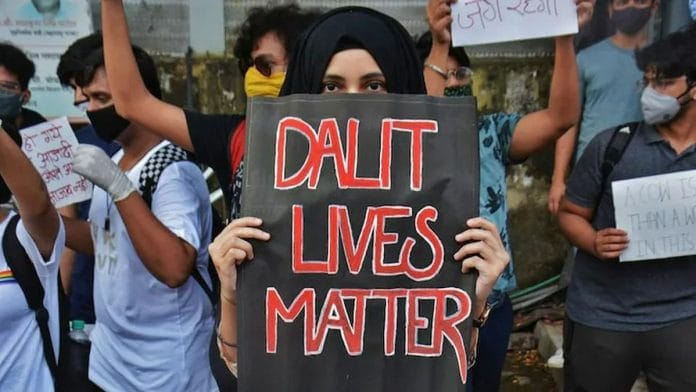Mainpuri: Forty-four years after 24 Dalits were massacred to death in Firozabad’s Dehuli village in Uttar Pradesh, a Mainpuri court Tuesday sentenced three people to death for their role in the killing.
Additional Sessions Judge Indira Singh also imposed a fine of Rs 1 lakh each on the three accused—80-year-old Ramsevak, 73-year-old Kaptan Singh and 76-year-old Rampal. Of the 20 accused in the killings on 18 November, 1981, 13 died during the trial and four are absconding.
The court termed the case as “rarest of the rare”, which justifies the death penalty.
“The crime committed by the accused is a shame on law and order as well as humanity. It is a crime that destroys the social structure,” the court noted.
The men, who claim they are innocent, can appeal against the sentence in a higher court.
The court convicted the three accused on 11 March and had fixed 18 March as the date for the verdict. Anticipating potential unrest, authorities tightened security around the court premises and deployed police personnel in Dehuli village.
Police and local sources said that the violence had stemmed from a Dalit-Thakur dispute over the domination of a gang led by Kunwarpal Jatav, who was beheaded in 1978 by Radhe and Santosh, two Thakur gang members who then assumed leadership. In 1980, the Radhe and Santosh gang had an encounter with the police in which two members were arrested and four Dalits became government witnesses.
On 18 November, 1981, a gang of 17 dacoits, led by Radhe and Santosh, disguised as policemen, then attacked the village and brutally murdered 24 Dalits because they suspected that some villagers of the Dalit community were providing information to the police in the murder case.
Assistant District Government Counsel Rohit Shukla told ThePrint that the shootout that lasted two and a half hours had begun when a local resident, Jwala Prasad, was shot dead in his potato field. The assailants then rampaged through the village, firing indiscriminately.
After the incident, all of them went on the run. A forensic team from Delhi collected 46 samples and reconstructed the crime scene, helping in the identification and arrest of all suspects, except five who eluded the police. Four fugitives—Lakshmi, Indal, Rukhan and Gyanchandra—have still not been arrested.
Police filed a chargesheet against 20 people and the case was pleaded by ADGC Shukla. Thirteen suspects, including the main accused Radhe and Santosh, had died during the trial, while the case against the remaining fugitives continues.
The survivors and members of the victims’ families expressed relief at the court’s decision.
One villager, Amritlal, who had lost 12 members of his family in the massacre, said he was happy he had finally got justice. He said that he had escaped by running into the fields after hearing the sound of bullets, but the fear of the incident never left him.
Bhoop Singh, an eyewitness, said that he was happy about this decision, adding that even though it was delayed, the victims got justice.
Another survivor, Jaidevi, lost four members of her family, including her husband, Jwala Prasad. According to her, so many bullets were fired that day that no one could understand where to run to save their lives. Those who managed to run away survived.
Jwala Prasad’s son, Banwari Lal, said that his father was shot first, followed by his two brothers, and then his uncle. The attackers were shooting anyone who came in front of them, he said.
Eyewitness Chameli Devi said that she was on the roof of her house, when the firing started. In a desperate attempt to save her life, she jumped down, breaking both her legs in the fall. She watched many people being killed as she lay on the ground.
The massacre had then triggered a mass exodus of Dalits from Dehuli. In response, the local administration deployed police personnel to the village for months in an attempt to restore a sense of security.
The incident also sparked a political outcry, prompting then prime minister Indira Gandhi to visit Dehuli and meet the survivors and victims’ families.
(Edited by Sugita Katyal)






